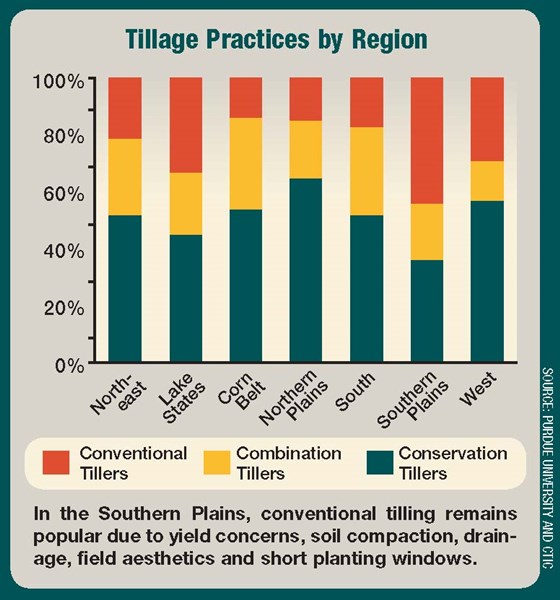Manage Carbon in the Soil Bank

Researchers at North Carolina State University and USDA–Agricultural Research Service (USDA–ARS) are studying the way carbon moves in and out of the soil and its role in how much carbon dioxide (CO2) is released into the atmosphere.
Earlier climate change studies suggested soil could be a huge carbon bank and a way to offset CO2 from natural processes such as respiration and soil decomposition. Not so fast, say the researchers. They conducted lab and field trials to see if elevated CO2 levels would stimulate organic carbon decomposition and the role of arbuscular mycorrhizal fungi (AMF) in the process. AMF serve as intermediaries, transferring phosphorus and zinc to growing grain crops in exchange for food in the form of carbohydrates.
"Elevated CO2 levels stimulate AMF, which increases organic residue decomposition by other soil microbes, converting organic nitrogen into ammonium but at the same time releasing more CO2 into the atmosphere," says Kent Burkey, a USDAARS plant physiologist.
"When there are higher CO2 levels, wheat’s ability to use nitrates is inhibited, so the carbon it provides AMF becomes critical for stimulating soil microbes to convert residues into ammonium that can be used by the plant," he adds.
The opportunity for farmers will be in managing each field’s carbon-to-nitrogen ratio and nitrogen transformations (ammonium, nitrates and nitrites). This will require reliance on soil tests, choice of nitrogen form and application rates, residue management and complex rotations to keep soil productive and greenhouse gases in balance.
Carrot-and-Stick Tillage Incentives Not Effective
 |
There are many reasons to adopt conservation tillage: to protect the soil, reduce costs and labor, and save time. Then why aren’t more farmers doing it? Purdue University researchers and the Conservation Technology Information Center (CTIC) studied farmers’ motivations and disincentives to use conservation tillage so programs might appeal to those who still use tillage.
A survey mailed to 6,000 farmers who each row-crop more than 250 acres shed some light. Of the respondents, 23% no-tilled exclusively; 55% were "conservation tillers;" 26% were "combination tillers," using no-till, reduced tillage and conventional tillage; and 20% used only conventional tillage.
One of the most surprising findings is that profit was not the major incentive in adopting no-till or conservation-till practices. In fact, any talk of profit increases, payments for conservation practices or carbon offsets had a negative impact.
Why? "We are thinking it might be related to stewardship and caring for the land or to providing better environmental quality for one’s local community," says Leigh Raymond, Purdue’s director of environmental research. "We’re in the middle of testing these now."







